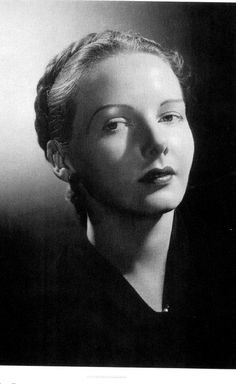Mary Frances Kennedy Fisher was a nice, privately-educated girl from California. Then she went to Europe and her life took an unexpected direction: she became a foodie. I would argue that she became the first foodie, and that it is because of MFK Fisher that we have foodies at all. In her many collections of essays starting with Serve it Forth in 1937, she got us thinking about the things we eat, and how much we could learn about life from paying attention to the way people lived in countries where food was intertwined with living. Fisher made a new life on the Continent where food was accorded respect, not the “just add water” of mid-20th century America, and certainly not in rationing/postwar Britain, where housewives struggled to conjure family dinner out of a turnip and some Bisto, and where Fisher’s tales of Rabelaisian banquets in Dijon must have seemed a taunting dream.
Yes, Fisher writes about food, but for me it is what’s happening around the edges of her table that were always the most interesting bits. Fisher was the pioneer of the food memoir – she wrote with passion and a sort of alertness about her own life and the food in it and the people she cooked and ate it with because she cared about it, and in reading it you come to care about it too. Now food memoirs infest the shelves: chef memoirs (chefoirs?) by the likes of Anthony Bourdain and Nigel Slater, process-based food memoirs where the writer seeks fulfilment by mastering butchery or chocolate making, and books about cute transatlantic courtships conducted over moules frites in Paris cafes. But with her debutante’s hands, Mary Frances laid down the stones of the road they are all traveling on. They could do a lot worse than try to emulate her clear-eyed prose.
The MFK Fisher compendium I own, The Art of Eating, is about as heavy as a Le Creuset casserole. It contains the complete texts of five of her books, and read cover to cover would surely upset the stomach of even the most devoted gastronome. But it’s one of those books that it’s a delight to dip into now and again. Some of the volumes have dated better than others – How to Cook a Wolf, a wartime recipe book, is a curiosity, and Consider the Oyster, an entire book devoted to preparing, discussing and celebrating bivalves, seems like a shitload too much about oysters (and no one loves those guys more than me). But The Gastronmical Me, which is essentially her life told through the medium of food in a series of lively essays, is an enduring delight. Here’s her foreword, in which she explains why she writes about food:
‘I tell about myself and how I ate bread on a lasting hillside, or drank red wine in a room now blown to bits, and it happens without my willing it that I am telling too about the people with me then, and their other deeper needs for love and happiness.
There is food in the bowl, and more often than not, because of what honesty I have, there is nourishment in the heart, to feed the wilder, more insistent hungers. We must eat. If, in the face of that dread fact, we can find other nourishment, and tolerance and compassion for it, we’ll be no less full of human dignity.
There is a communion of more than our bodies when bread is broken and wine drunk. And that is my answer, when people ask me: Why do you write about hunger, and not wars or love?’
Kate Feld is a Manchester-based writer and co-editor of The Real Story.

